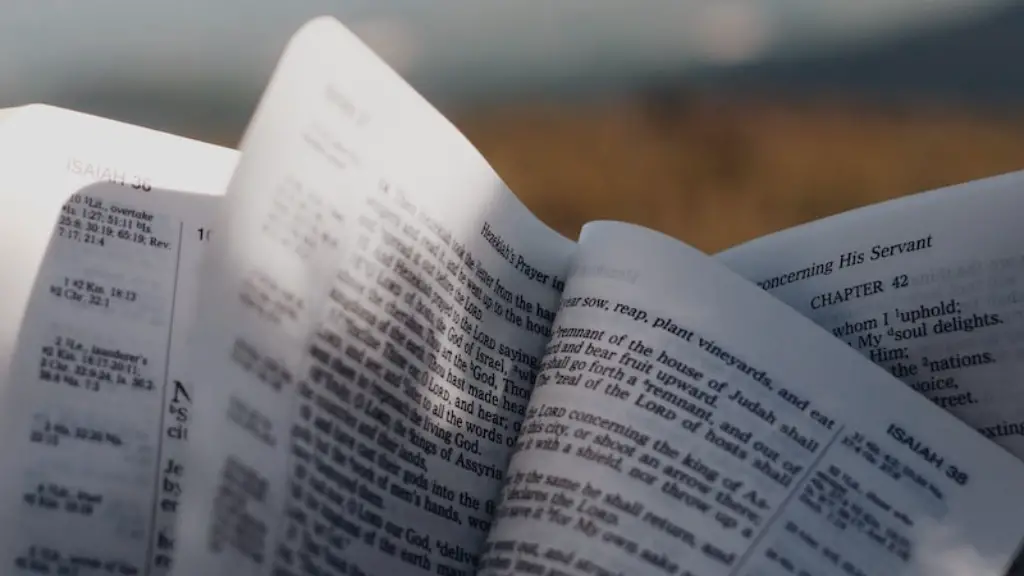The Minor Prophets In The Bible And Their Teachings
The Minor Prophets in the Bible are a collection of twelve books whose authors were prophets. These twelve books, in their traditional placements, can be found in the Old Testament. These books are Hosea, Joel, Amos, Obadiah, Jonah, Micah, Nahum, Habakkuk, Zephaniah, Haggai, Zechariah, and Malachi.
Throughout the Minor Prophets, we can observe them set out a message about justice, mercy, and faith. Also, despite their similarities, every book finds its own specific way to express these beliefs. The prophets dwelled on topics such as God’s justice and righteousness, the future of Israel, the need for repentance, and the way in which a people of faith should respond to tragedy.
For example, Joel focuses on warning the world about the coming of the Day of the Lord. This is the day of judgement when the dead will be brought from the grave, the land will be restored, and the blessings will be heard everywhere, not only in Israel. Obadiah speaks of how God will punish the Edomite people who were enemies of his chosen land. The Edomites will be judged for disregarding the right of Israel and the truths of God.
The Minor Prophets were mostly concerned with the spiritual life of Israel; they showed that the right direction should be the way in which to bring God’s justice, mercy, and grace to the world. They demonstrated how God’s covenant holds with Israel, how this brings spiritual blessings to all people and nations, and how the faith of Israel and individuals should be applied in order to live in a better world.
The writings of the Minor Prophets have a timelessness to them. They speak of what it means to be devoted to God, regardless of the era or period. In the same way, their teachings support not a political freedom, but a spiritual freedom.
The Historical Context And Relevance Of The Minor Prophets In The Bible
The Minor Prophets are a collection of books written by the prophets of the Old Testament. These prophets came from different backgrounds and lived during different periods in Judaism. Their mission was to prepare the people of Israel and other nations to repent and embrace the faith of the prophets to be saved as a people.
The prophets spoke of the torments of exile, and of the punishment God had promised his people if they disobeyed his laws. They spoke of a just God, with special attention to those who were overlooked in the society of the time; widows, orphans, foreign slaves, and those in poverty. At the same time, they shown how mercy could temper justice, and reminded their listeners of God’s love and mercy.
The Minor Prophets represented and reinforced an ancient concept of justice, mercy and faith. This concept is still relevant today, in our modern and globalised society, because it speaks of a wrong culture of neglecting those in misery and inequality in favour of what is profitable and convenient for us. It offers us a reminder that, as we are all God’s children, each person has value and must be observed and respected by the society in which we live.
The study of the Minor Prophets does not only provide us with a historical context, but also shows us how to restore our faith so that we can be faithful people. The Minor Prophets are a reminder of our humanity, that we are all equals, regardless of religion or ethnic background.
The Faith Of The Minor Prophets In The Bible
The faithful words of the Minor Prophets are an ongoing testament to the faith that exists between humans and God. In their spiritual writings, they spread forth an understanding of what it means to be devoted to God – how faith is a matter of the heart and spirit.
They showed us that to be devoted to God’s will is the only way to be truly liberated, even in times of slavery and sacrifice. They provided us with encouragement and hope when times get gloomy. Through their writings, they invited us to look for joy and for peace in a world sometimes filled with misunderstanding and discord.
As the prophets offered a glimpse into God’s power, we can also recognize his accessibility – not as a distant being, but as a loving parent. The prophets’ described how God invites us to open our hearts and our souls so that we can listen to his voice and trust that his words are our guide.
The Minor Prophets In The Bible As Guides For Everyday Life
The Minor Prophets’ writings reflect their devotion to God and the knowledge that he is present in their lives. We can learn from them about how to be true believers, how to be thankful and faithful to God, even in the most difficult times.
They offer us many helpful guidelines for how to lead our lives with faith, mercy and justice. For example, by learning from Obadiah, we can be reminded to remember fairness and justice when dealing with our enemies. By taking the message from Zechariah, we can be reminded that even when our faith wavers, God is always there for us, ready to accept us and our faults. And, finally, by learning from Micah, we can be reminded to focus on God’s goodness and mercy, and to put our trust in Him rather than in material goods.
The Minor Prophets are not only applicable to life in times past, but remain relevant to us today. Through their spiritual writings, they provide us with timeless lessons on faith, justice and mercy, as well access to God’s omnipresent love.
The Contributions Of Minor Prophets To Biblical Studies
The Minor Prophets are particularly valuable for the study of the Bible because, even though short, they are full of rich insight. Their books provide an additional perspective to understanding the Old Testament and can help to bridge any gaps left by the other books.
The Minor Prophets’ writings point us to God’s promises of salvation, of justice and mercy, and highlight the importance of being faithful to God’s law for our spiritual growth and for understanding God’s will.
It is important to note that, even though the Minor Prophets have not been studied as much as other books in the Bible, this does not make the insights they bring any less relevant. There is still much to be said, explored and discovered in the Minor Prophets.
Interpreting The Writings Of The Minor Prophets In The Bible
Interpreting the writings of the Minor Prophets is a critical part of keeping our faith alive. In order to do this properly, we must approach the books with open minds and hearts in order to access the intended meaning in their words.
It is important to remember that the Minor Prophets were aiming to reach to the hearts of their listeners, rather than to present a universal truth. For example, Joel’s message of a coming judgement might be interpreted as a literal or metaphorical warning about current events. Similarly, Haggai’s words about God’s people needing to rebuild the temple might offer warnings about current forms of spiritual destruction and what it takes to restore faith in the face of such destruction.
It is this process of interpretation that can help to open our minds and hearts to the love of God. By exploring the books of the Minor Prophets, we can enter into that relationship with God that allows us to live out God’s will in our own lives.
How The Minor Prophets Endure In The Present Day
The Minor Prophets have survived the test of time and remain relevant even in today’s world. To be sure, the world has changed since they were written, and not all of the teachings may appear applicable. Nevertheless, the timeless themes of justice, mercy, and faith can be found in our present day.
For example, many of the evils that were fought in medieval Judaism are still present today in different forms and they call for the same foundations of justice and mercy. We can find those issues in our society, from poverty, to racism and to the exploitation of women. Fortunately, the Minor Prophets’ words are still there to remind us of the importance of faith and of God’s mercy.
The Minor Prophets still live in the present day. Through their contribution to reflection and faith, we are able to keep their spirit alive and to maintain a relationship of love, justice, and mercy with God.

